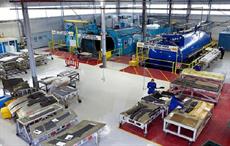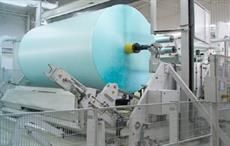Innovate UK has granted £355k to NCC for the purpose of investigating and validating ways to achieve a net zero future. NCC will work with UK SMEs towards this end. The funds will enable NCC focus on how composite materials can be best utilised in products, and also, on the environmental impact of the materials being used and how this can be mitigated.
The grant is part of the Sustainable Innovation Fund.Innovate UK has granted £355k to NCC for the purpose of investigating and validating ways to achieve a net zero future. NCC will work with UK SMEs towards this end. The funds will enable NCC focus on how composite materials can be best utilised in products, and also, on the environmental impact of the materials being used and how this can be mitigated.#
The innovative projects cover a range of industries, all with sustainability at their core - whether they are looking to use recycled materials in existing products or design new products that are more recyclable. A life cycle assessment will also be conducted by the NCC, the world-leading research and development centre, for each project.
The NCC will be part of a consortium working on TUPROOFS which is investigating how to make retrofit roof panes more efficient at generating power by incorporating solar power and a water heating process underneath the panel. The consortium comprises Advanced Construction Technologies, BIPVco, Midlands High Growth, West Rogers Limited and the Hadley Group. If successful, it is anticipated that over 30,000 houses in the UK will be retrofitted with the panels, providing thousands of families around the country with greener energy, eliminating fuel poverty and creating thousands of new jobs.
The Novel Composite E-Bike project sees the NCC partner with mountain bike manufacturer, Starling Cycles, and Composite Braiding, leaders in thermoplastic composite braiding technology. The project will develop the first continuous thermoplastic fibre e-bike in the world, using thermoplastic composite braiding to create the A-frame. Thermoplastics allow the resin to be stripped from the fibres at end-of-life, meaning the product will be more recyclable, as well as more easily repairable during its lifetime. The aim is for the Novel Composite E-Bike to be manufactured and sold around the world, creating a net zero transport option for millions of people.
Working alongside Cecence and ELG Carbon Fibre on the Sustainable Aero Seat Back project, the NCC will be collaborating on re-designing the structural entity of an aeroplane seat, replacing as much virgin carbon fibre as possible with recycled materials while maintaining structural performance to meet the strenuous certification requirements.
“As the NCC, our role is to help industry and innovators solve some of the most challenging problems facing the world today, and how engineering can help achieve a net zero environment is one of those,” said Leah Rider, technology programme manager at the NCC. “We’re incredibly excited about these projects and the potential impact they could have in all walks of life, not just through the results themselves, but also how that knowledge could then be applied to other products and processes.”
“We’re embedding sustainability into all our projects, and through our Sustainable Composites partnership with the Centre for Process Innovation (CPI), we are working with industrial, academic and government partners, to build a supply chain from raw material suppliers to end-of-life recycling with the ability to deliver the next generation of sustainable composites by 2040,” Rider added.
Innovate UK, as part of UK Research and Innovation, is investing up to £191 million to fund single and collaborative research and development projects as part of the Sustainable Innovation Fund over the next two years. The aim of these competitions is to help all sectors of the UK rebuild after the effects of COVID-19.
The Sustainable Innovation Fund is funding 1,103 projects, 1069 UK businesses and totalling over £130 million in support across the UK.
Fibre2Fashion News Desk (SV)


